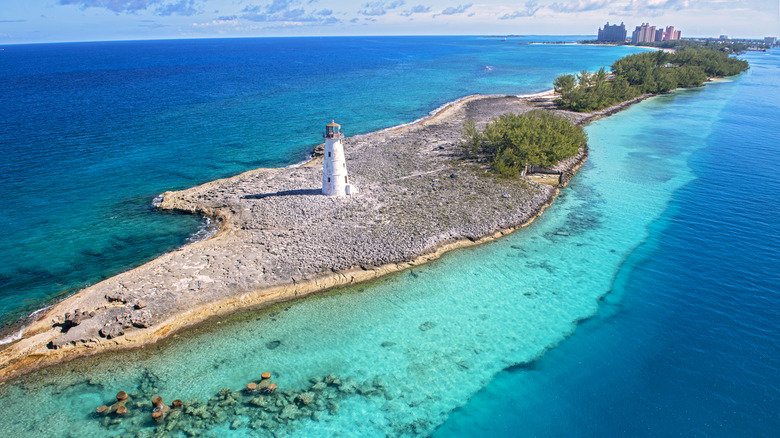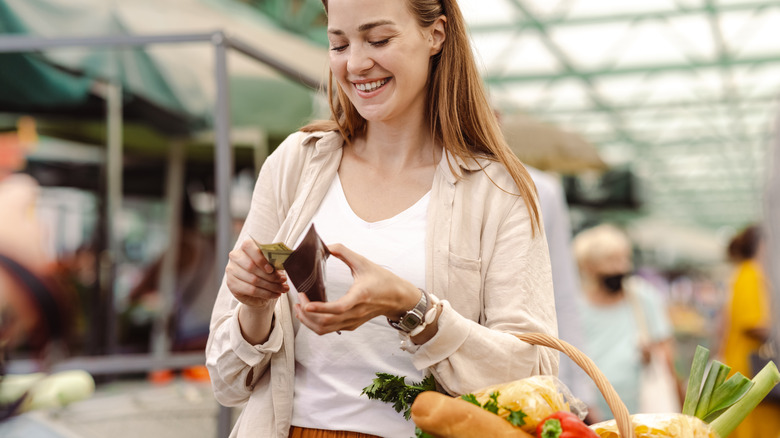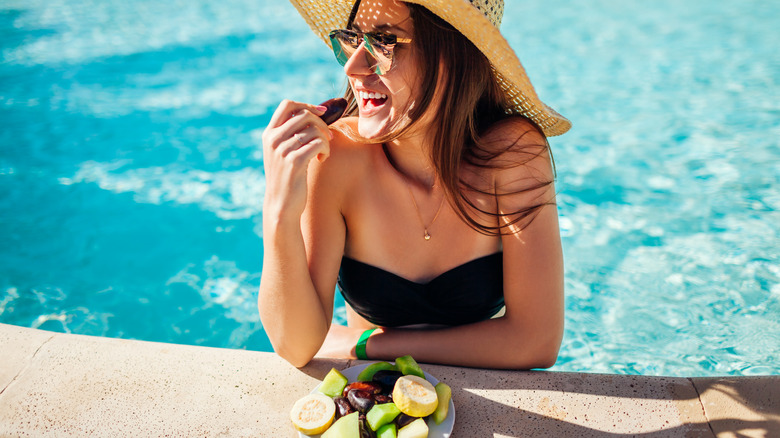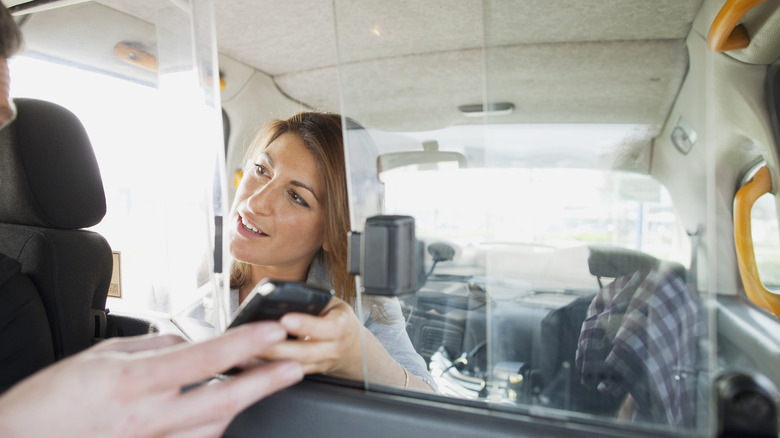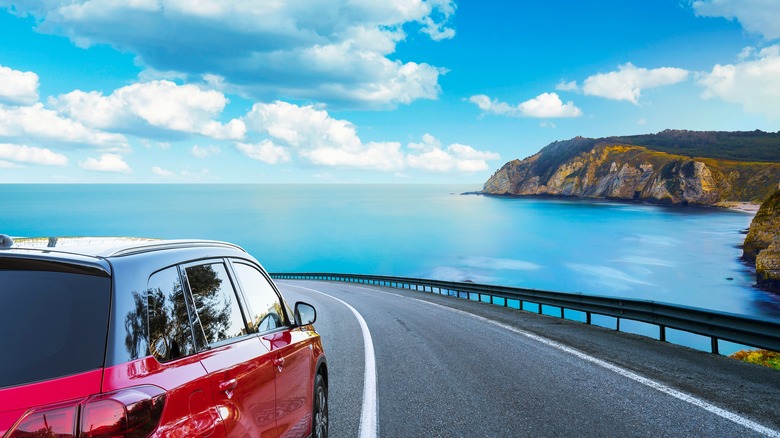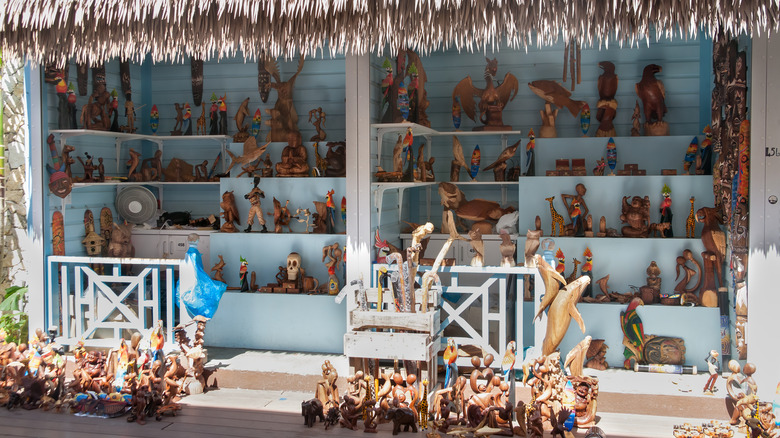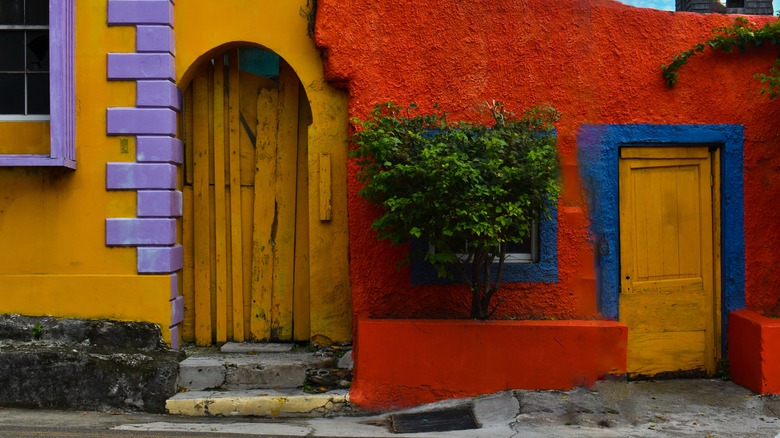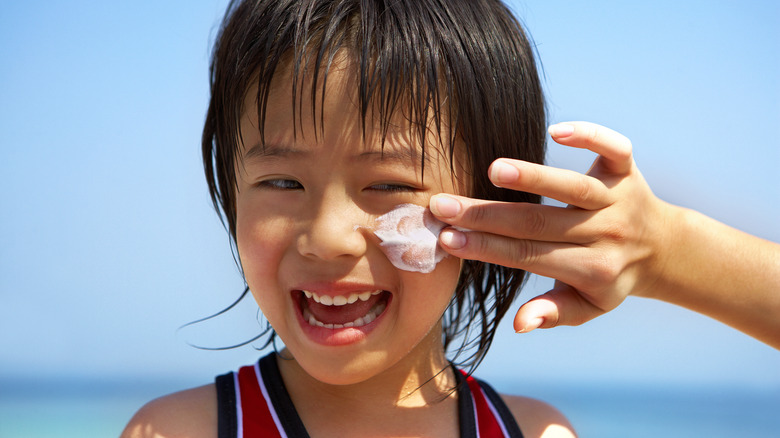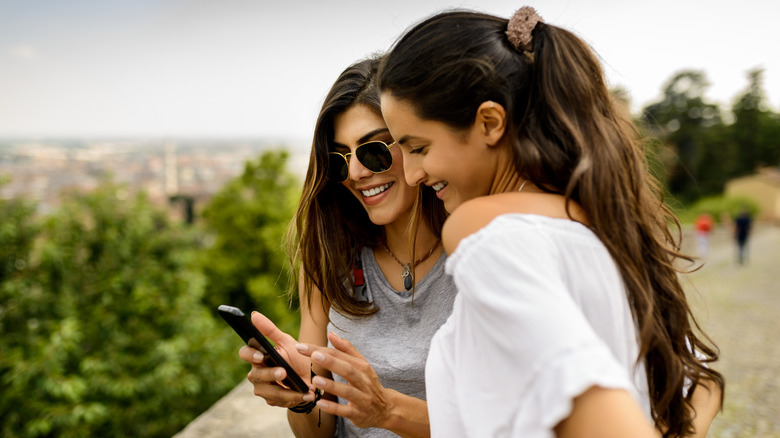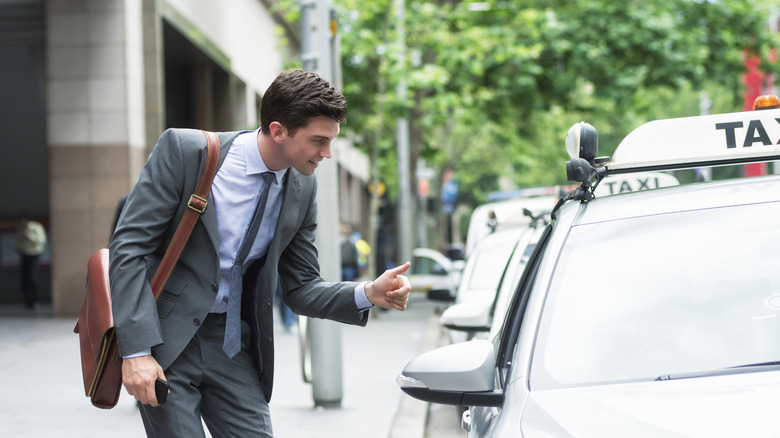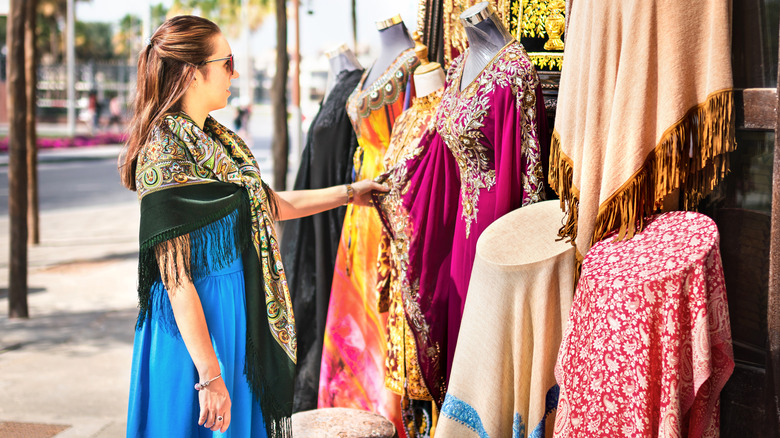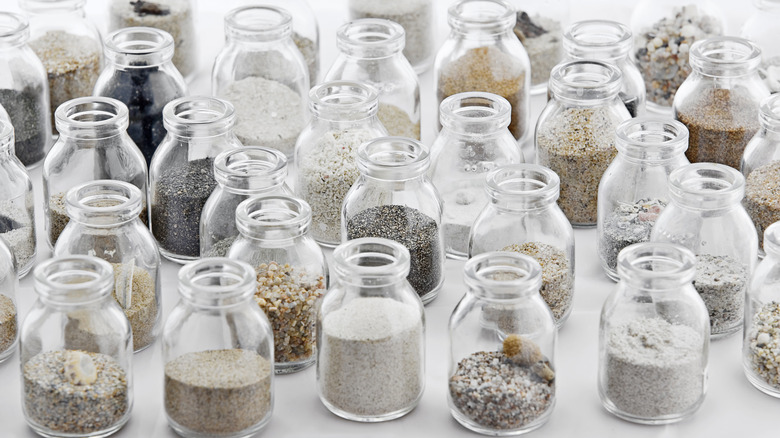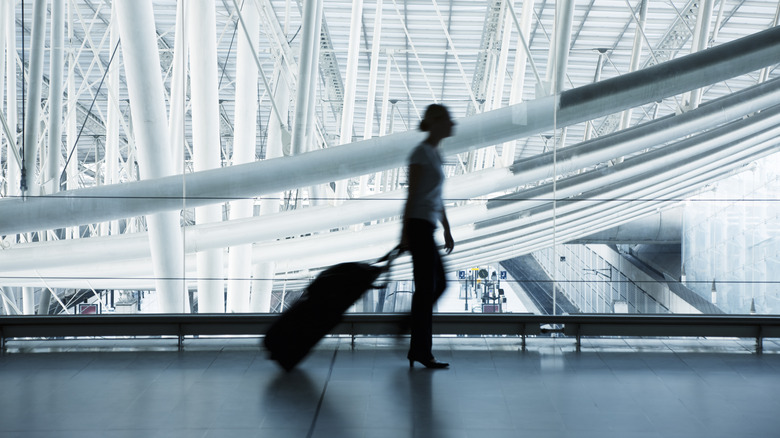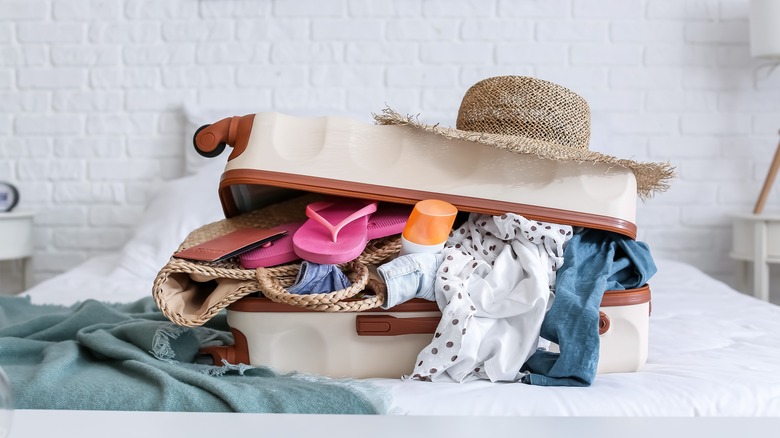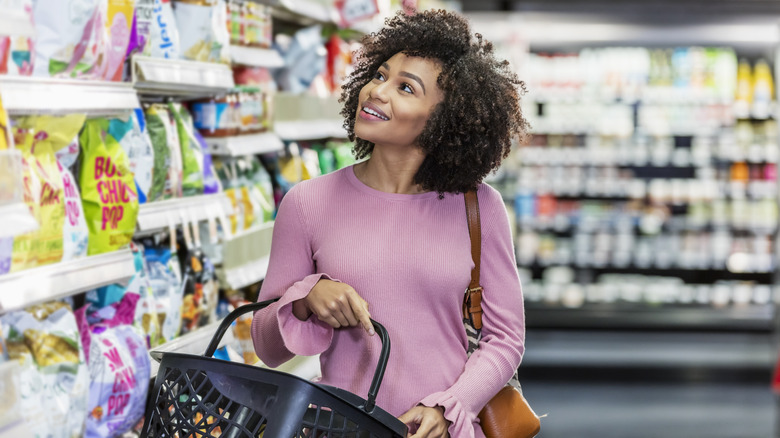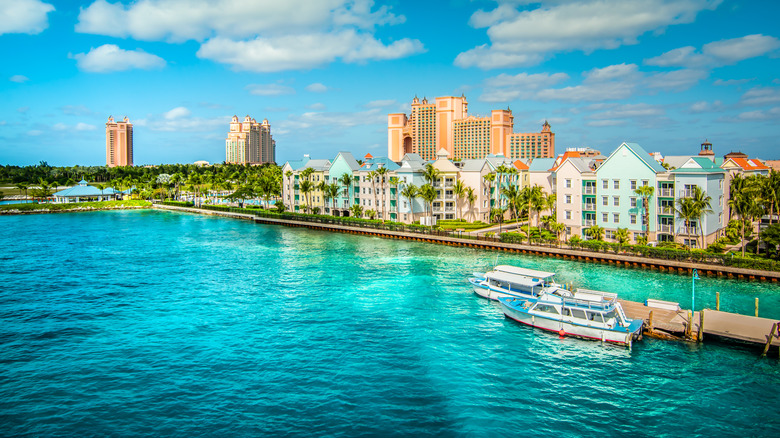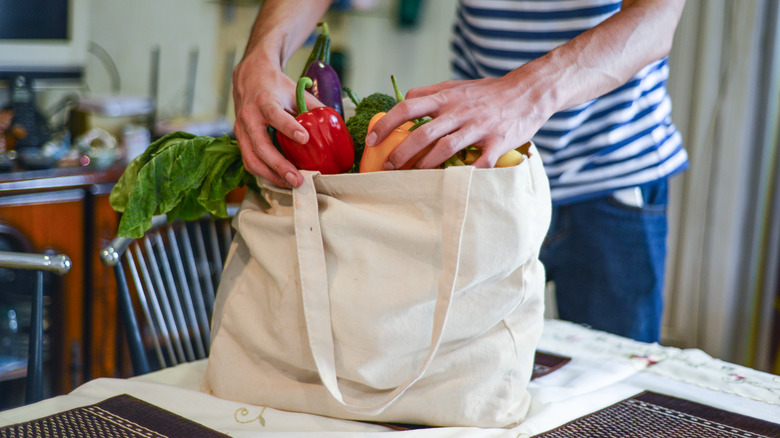16 Essential Travel Hacks When Visiting The Bahamas
Turquoise waters and pink sands are what await the millions of travelers who journey to the Bahamas each year. Though the road to these miles of tropical coasts is well paved by many tourists who have come before you, there are always ways to improve the travel experience. From packing and shopping to getting around and finding the islands' hidden gems, we have some killer tips and tricks that could simplify your Bahamas vacation and save you a bit of money, too.
The Bahamas is a bucket list destination for many people, but watch out for cookie-cutter itineraries and tourist traps. Instead, ditch the mold and experience everything the islands have to offer. Whether you want to enjoy a more economical experience in paradise, explore like a local, or find the coolest spots off the main tourist drag, these hacks will have you navigating the Bahamas like a pro.
1. Use Bahamian dollars first
Though an independent country, the Bahamas uses the Bahamian and U.S. dollar interchangeably. This means there's no need to exchange U.S. dollars for Bahamian money. You will need to bring some of those Benjamins, though, and when you use them with local vendors, Bahamian dollars could fall into your pocket when getting change. When you receive Bahamian money, use it before any other payment method because they're only good on the islands.
If you have excess Bahamian money you want to part with before heading stateside, your last chance to offload it will be at the airport. If you use your island money there, they will give you U.S. dollars as change. Pro tip: use a large Bahamian bill to pay for something small like a candy bar, and you'll avoid an exchange fee. Travelers visiting the Bahamas from other parts of the world may want to consider exchanging their home currencies for the U.S. dollar rather than Bahamian. The U.S. dollar is more widely accepted globally than the Bahamian one, which you can use on future adventures.
2. Try guava before arriving
Here's a hack to keep you from spending your island vacation in the hospital: watch what you eat! If you've never had guava before, try a bit before you head to the island. Quite a few people are allergic to the fruit and never know until they go to a tropical destination. If you have asthma, this tip is especially important, as guava contains a large amount of salicylate chemicals. Though salicylates have medicinal benefits, they can also worsen asthma in those who are allergic.
If you know you are allergic or don't want to risk it, ask about the ingredients of items you order if you are unsure. Guava is involved in many Bahamian dishes, like the national dessert Guava Duff. Sometimes, it's not quite so apparent as being in the name, though, as guava can be used as a natural sweetener. If you have an allergic reaction, at least you have the benefit of not being in a foreign country if you first try it at home.
3. Talk to your taxi driver
With apps like Lyft and Uber, you may wonder who needs taxis. However, the Bahamas tourist reaps some benefits from the legacy service, and the taxi business is alive and well in the islands. In fact, you can put your phone away because Uber isn't at all a thing in the Bahamas. Taxi cabs are also so much more than just a means to reach a location, as your driver will likely be one of the greatest resources on the islands.
Your taxi driver will be your key to good food and hidden gems that may not have come up during your research of possible outings. As they drive around the island daily, ask them where to go, and treat them like a Bahamas expert. This includes water taxi drivers, too. Drivers and over half of the Bahamas' workers make their living off tourists and are happy to help point you to fantastic spots. They want you to return, bring your friends, and spend your money. And don't forget to show your thanks with a tip!
4. Rent a car
While we recommend hailing a cab at least once to pick the brain of your driver, renting a car in the Bahamas will be much more affordable than relying on cab rides everywhere. Cab fares vary based on several factors, but a single cab ride can cost around $20 for a short and sweet jaunt or upwards of $60 for longer trips. Alternatively, renting a car could cost you as low as $47 daily. This means that a car rental could quickly come out as the more affordable option in just one or two cab rides. If you envision an island adventure exploring the Bahamian culture and everyday life, renting a car opens up that reality.
There are a couple of important notes for travelers considering driving in the Bahamas. You should know that they drive on the left side here. You should also note that beeping your horn does not have the same connotation that it does in America. Instead, some quick beeps are actually seen as a kind acknowledgment. Learning the different driving cultures is vital to traveling around the island like a local.
5. Go into the straw market with a keen eye
Nassau's Straw Market is almost a rite of passage for those visiting the Bahamas. The market boasts hand-crafted goods from locals, like straw hats and bags, wood-carved figurines, shell jewelry, and an array of hand-woven straw products. Though you may expect everything your eyes land on to be handmade, this may not be the case. Some vendors may have goods that have been imported, and you'll want to have a keen eye to come home with an authentic Bahamian piece.
Traveling outside the main tourist drag is an excellent way to find straw work made locally, but it is wholly possible to find a great range of handmade items within the Straw Market. Look for vendors who are actively weaving or carving. You may be able to buy a piece that is getting made before your very eyes or at least one from someone you know who has the craft. On the other hand, if something looks a little too perfect, you can probably chalk it up to imported, manufactured goods.
6. Get away from the tourist traps
If you are taking a cruise to the Bahamas, get off the ship at port and keep walking. The port area is going to be hyper-focused on tourists. You may be a tourist, but you don't have to travel like one if you'd rather have a more authentic experience. By all means, scope out the Straw Market and Bay Street, but commonly overlooked places like Potter's Cay (a collection of fishing docks, fruit markets, and conch shacks) and Sunken Meadow State Park should be on your radar, too.
The islands are ripe with possibilities for travelers who arrive in the Bahamas without the aid of a cruise ship. Don't just one-and-done it with Nassau or Atlantis. The Bahamas is more than just the main island; ignoring the more underrated Bahamas islands is a massive missed opportunity. Over 80% of the land that makes up the Bahamas consists of islands that almost two-thirds of visitors do not visit. This means near-empty and gorgeous tropical beaches, perfect for travelers who revel in solitude or photo-centric explorers looking for their next Instagram inspiration.
7. Check your sunscreen
Nothing is worse than getting a bad sunburn on the first day of your long-awaited vacation, but there's more than just your complexion at risk here. Certain sunscreens contain chemicals that harm the coral reefs in the Bahamas and other tropical destinations. When shopping for your Bahamian vacation, ensure the sunscreen you toss in the cart is reef-safe.
It's your responsibility as a tourist to ensure you leave your destination the way you found it. Sunscreen is vital in the Bahamas, but conservation is just as essential, and protecting the coral reefs there takes priority. There is irreversible damage done to the reefs by a sunscreen that contains oxybenzone and octinoxate, called reef bleaching. Look for either "reef-safe" or "reef-friendly" markings on sunscreen bottles, but also make sure you are checking the active ingredient list. If a product has the "Protect Land + Sea Certification" seal, you can be confident you are helping protect the reefs.
8. Socialize before your cruise
You don't need to wait until you're on board to start chumming it up with fellow cruisegoers. Go online to sites like Cruise Critic and connect with other passengers with groups called Roll Calls. They are cruise-specific communities that allow you to forge connections before stepping on board. You may also be able to find a Facebook group for people traveling to the Bahamas around the same time; if not, you can always create your own for other hopeful travelers to find.
These social resources are great for helping socially anxious travelers feel more at ease. Not all cruisers are there to make friends, and connecting passengers online ahead of time makes identifying potential travel pals simple. Making these types of connections ahead of time also opens your journey up to more exciting outings, as you can plan with other travelers where you'd like to explore and which excursions you want to do together.
9. Confirm the price before committing to any good or service
The Bahamas is, above everything, a tourist destination. Despite most people being quite lovely, plenty are willing to make a quick buck off unsuspecting visitors. You can avoid looking like an easy target by being upfront with your expectations and asking others about theirs. If a good or service has no clear price tag, inquire about it before purchasing.
Avoid buying "market price" dishes at restaurants, and be sure to ask taxi drivers the fare to your destination before taking the cab. If you take a good or service before confirming the price, this opens the seller up to boost the cost when it comes time to pay. While not all servers or drivers are dishonest, establishing the price before consenting to buy takes much of the risk of being scammed out of the transaction.
10. Haggle
At places like the Straw Market or one of the more low-key food markets, haggling is not only allowed but also widely expected. This is the practice of requesting a lower price for items you're interested in buying until you and the seller reach a mutually beneficial agreement. This can help you spread your money out further and create fond memories of market interactions.
Haggling is a fun part of the Bahamian experience at the local markets, but be prepared to walk away if your price isn't met. This may work out for you, with the vendor calling you back to make the deal, or you may miss out on the item. Do not fret, though, because plenty of vendors are selling the same style of goods, and you will likely move on to make another deal you're pleased about. Remember that many goods there are handmade by people who work hard, so they deserve to be paid a fair price!
11. Know what you can and can't bring home
You may be tempted to bring a little bit of the Bahamas back home with you, and you can! However, some would-be souvenirs are better left on the island. Your vacation plans most likely don't include getting in trouble with customs agents, so knowing what you can and can not travel with between the Bahamas and your home country is important.
Suppose you were planning on stocking up on some cigars while in the Bahamas; we have good and bad news. You can bring cigars through customs. However, you are limited to 100 cigars. Similarly, if you were planning to gift a bottle of spiced rum to each of your spirit-loving family members, you may be disappointed. You can bring back at least one liter of alcohol duty-free, but each state will have its own regulations on alcohol imports. Even taking sand from the beaches may not be allowed, though sometimes customs will let you get away with a small amount.
If you don't follow customs procedures, you could get held up at the airport and potentially miss your flight back home. The contraband in question will likely get confiscated, or you could face a hefty fee. Knowing the rules concerning bringing home souvenirs is the ultimate hack for keeping your items and saving time at the airport.
12. Skip the fast track at Nassau Airport
The airport is a source of stress for many explorers, especially when traveling internationally. It can be tempting to do anything to alleviate some of that stress, and Nassau Airport has a fast-track program to help travelers get through customs quicker. Passengers who opt for the add-on receive escorts at the airport and an expedited customs and immigration process. It's priced at an extra $200 round trip for one passenger, but you have to wonder if it's worth it. The truth is, you can give yourself a boost for the unbeatable price of free.
The smartest thing you can do to save time is to have all your paperwork filled out before you even land in the Bahamas. You should pack a pen or pencil in your carry-on and make a beeline for immigration once off the plane. Skipping the fast track may save you as much as your actual flight cost in the first place and won't take up much more of your vacation time.
13. Pack a collapsible duffle bag
If you are a part of the 65% of people who like to bring home souvenirs from a trip (via YouGov Omnibus), you've likely struggled when it comes time to pack for your return trip. You can shift things around for a snug fit if you've only purchased small items or just a few keepsakes. However, if you have a lot of people to buy for or have found some killer pieces for yourself, you can not magically create more space for your items. That is unless you have packed an extra bag for your return trip.
You will now have an entire bag for your keepsakes and extra room in your main bag for any clothes or personal items you've picked up on the island. Checking an extra bag full of souvenirs can be more affordable than shipping souvenirs back home. This is especially true when you consider the cost of shipping materials and the time it takes to track them down.
14. Pack snacks and toiletries
A simple, more affordable alternative to packing a collapsible duffle bag is to save room in your main luggage for souvenirs. On your journey's first leg, you can fill this space with snacks and toiletries. You'll use up much of this before you're ready for your return trip, and buying these things in the Bahamas could cost a pretty penny.
When choosing which snacks you want to pack, consider that they could have a bumpy ride to the Bahamas. Don't bring anything that could break and make a mess of your clothes and necessities, or you'll have a nasty surprise upon unpacking for your tropical getaway. Similarly, more fragile snacks like chips or freeze-dried goods may not make the journey intact. When it comes to toiletries, you may find it worth bringing only what you think you'll need and disposing of it before your return trip home in favor of more luggage space.
15. Island hoppers travel light
We've spent some time guiding you on how to make the most out of your luggage, but forget all of that if you plan on an island-hopping adventure. If you intend to change your accommodations throughout your stay and visit multiple islands for more than just a day trip, try to keep your baggage to a carry-on. It's not impossible to lug around a bag and a half of luggage from island to island, but it isn't ideal.
Keeping your baggage light as you travel around the islands will save you time and money while giving you more freedom. Bringing more than one bag on a ferry will cost you around $25 each time you island hop; you should also limit your carry-on to under 25 pounds. This hack is vital for those with exploration in mind while in the Bahamas, as your belongings will not tie you down.
16. Pack some reusable bags
Something that probably isn't already on your beach packing checklist is reusable tote bags, but they certainly should be. The bags serve a dual purpose. First, they're great for keeping your clean items separate from your damp and sandy clothes after a day on the beach. Second, you'll need them if you are planning to do any cooking of your own.
You may think you'll eat out for every meal, but taking advantage of grocery stores is a great way to save money and live like a local. You'll find no Walmarts or big-brand grocery stores in the Bahamas, but you will come across plenty of groceries along the coast. Conservation is big in the Bahamas, so plastic bags will not be offered once you check out. Bring reusable tote bags for your shopping; they could also come in handy when you're at the handmade markets.
